
MANY DECADES AGO, I ASKED myself how, if I could do so from scratch, I might draw the boundaries of Canada’s provinces and territories. Though never really answer that question to my own satisfaction, I have delved into Canadian geography, demography, economics, and history. This article is about history, and let me start in the middle, with the map of Confederation before 1905 (see map above). That is when the federal government had subdivided the old North-West Territories into nine districts. We can reasonably regard the districts as Ottawa’s plan for the creation of separate territories and, eventually, provinces. However, that map only loosely resembles the one we know today. Here is how and why Canada’s boundaries evolved the way they did.
THE NATURAL REGIONS OF CANADA
Most present-day Canadian jurisdictions originate in the British period (and are similar to those established under earlier French rule). One might think the imperial authorities would have divided the country into its natural regions (see map above). Indigenous Peoples who lived in what is now Canada had societies strongly shaped by these landforms, climates and the ecosystems they produced.
Europeans, on the other hand, did not fully understand such geography during the early phases of exploration and settlement. As the colonial powers began to make their own boundaries, they only loosely considered these natural regions. The leaders of British North America (and of New France before them) were, however, influenced by watersheds, the transportation routes by which early European development took place.
BRITISH ADMINISTRATION BEFORE CONFEDERATION
This story is from the Best of Canadian Geographic 2020 edition of Canadian Geographic.
Start your 7-day Magzter GOLD free trial to access thousands of curated premium stories, and 9,000+ magazines and newspapers.
Already a subscriber ? Sign In
This story is from the Best of Canadian Geographic 2020 edition of Canadian Geographic.
Start your 7-day Magzter GOLD free trial to access thousands of curated premium stories, and 9,000+ magazines and newspapers.
Already a subscriber? Sign In
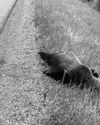
ANIMAL XING
THIS PAST SUMMER AN AMBITIOUS WILDLIFE UNDER/OVERPASS SYSTEM BROKE GROUND IN B.C. ON A DEADLY STRETCH OF HIGHWAY JUST WEST OF THE ALBERTA BORDER. HERE’S HOW IT HAPPENED.
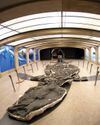
Unearthing a giant
Almost 30 years ago, paleontologist Elizabeth “Betsy” Nicholls made a discovery of colossal proportions
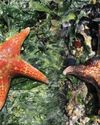
WE DID THIS
AS THE IMPACTS OF GLOBAL WARMING BECOME INCREASINGLY EVIDENT, THE CONNECTIONS TO BIODIVERSITY LOSS ARE HARD TO IGNORE. CAN THIS FALL’S TWO KEY INTERNATIONAL CONFERENCES POINT US TO A NATURE-POSITIVE FUTURE?
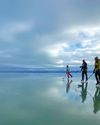
The COOLEST COUNTRY
“The coolest country” celebrates the wonders of winter with an all-Canadian theme. The 20-page travel planner includes a bucket list from travel writer Robin Esrock, steamy spa ideas, ice fishing destinations, festival fun, northern itineraries and more!
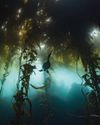
KEEPER of the SEA
FROM BEING LABELLED DEVIL’S APRON BY FRUSTRATED FISHERMEN TO BEING LAUDED AS A SUSTAINABLE FOOD SOLUTION: HOW KELP’S POTENTIAL IS BEING REALIZED, JUST AS SCIENTISTS LEARN IT’S DECLINING

WILD THINGS
WILD CANADIAN GEOGRAPHIC PRESENTS THE WINNERS OF ITS ANNUAL CANADIAN WILDLIFE PHOTOGRAPHY OF THE YEAR COMPETITION

AN EMPTY LANDSCAPE
AFTER MORE THAN A MILLION YEARS ON EARTH, CARIBOU ARE UNDER THREAT OF GLOBAL EXTINCTION. THE PRECIPITOUS DECLINE OF THE ONCE MIGHTY HERDS IS A TRAGEDY THAT IS HARD TO WATCH — AND EVEN HARDER TO REVERSE.
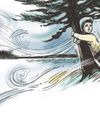
NORTHERN EXPOSURE
BON INTO A CARIBOU-HUNTING CREE FAMILY IN NORTHERN MANITOBA, ACCLAIMED PLAYWRIGHT AND NOVELIST. TOMSON HIGHWAYS PAYS TRIBUTE TO THE MAGICAL WORLD OF HIS CHILDHOOD IN PERMANENT ASTONISHMENT
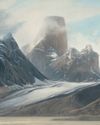
INTO THE ARCTIC
CANADIAN PAINTER AND FILMMAKER CORY TRÉPANIER EXPLORES THE SUBLIME AND RAPIDLY CHANGING CANADIAN ARCTIC
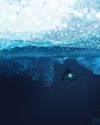
Under the ice
Until the last decade, we knew little about what lay beneath the Arctic ice. Now scientists and explorers are shedding light on this vanishing world.